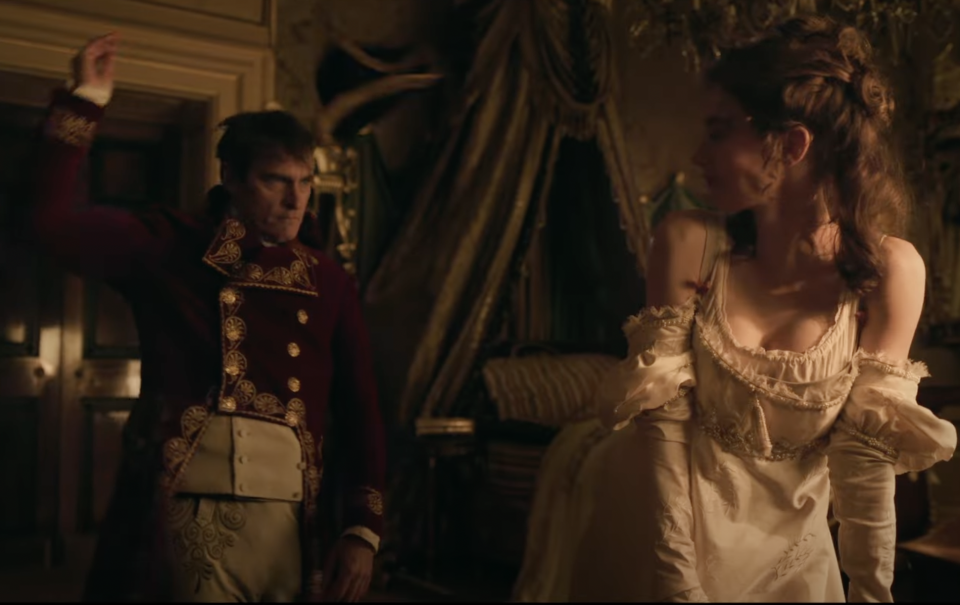Ridley Scott’s Multiple Cameras Gave Us Joaquin Phoenix Grunting Like a Pig in ‘Napoleon’

Ever since he convinced cinematographer Sławomir Idziak to cover the elaborate action sequences in “Black Hawk Down” with 11 cameras, Ridley Scott has been evolving a multi-camera style that is as creatively dynamic as it is economically sensible, capturing a maximum number of angles in a minimal amount of time. The benefits of Scott‘s approach are obvious in a set piece like the Austerlitz sequence in “Napoleon,” where he maintains a clarity of geography and accelerated cutting pace while orchestrating thousands of characters engaged in battle. Yet according to the director, shooting with multiple cameras is just as valuable — perhaps even more so — in the intimate scenes between the moments of spectacle.
“My method is to always work with a minimum of four cameras,” Scott told IndieWire’s Filmmaker Toolkit podcast, noting that even logistically simple scenes between Napoleon (Joaquin Phoenix) and Josephine (Vanessa Kirby) behind closed doors benefit from this form of shooting. “It releases and frees up the actors. If mistakes occur, I never cut. I will keep running because a fortunate mistake can evolve into something magic.” The fact that both actors were always on camera meant that Phoenix and Kirby could try new ideas on the fly without worrying about continuity. “I think they love that, because whatever they’re doing, even if they’re not speaking, they’re on camera. It gives [Joaquin] the freedom to do what he wants.”
More from IndieWire
That freedom yielded some of the film’s most entertaining moments, particularly in the film’s often hilarious love scenes. “Sex can get boring,” Scott said. “Therefore we decided to make all the sensual scenes amusing — though by being amusing, it adds sensuality to them, strangely enough. The scene where he crawls underneath the table at breakfast time was unplanned. He just did that. I put a tablecloth on so I could maximize the shadow of this guy crawling underneath the table grunting like a little pig. So it becomes comical.”

Although Idziak resisted Scott’s desire to utilize multiple cameras (“He said, ‘I hate sunshine and I only work with one camera’ — we ended up with 11 cameras in Morocco,” according to Scott) and other directors of photography claim more than one camera compromises their lighting, Dariusz Wolski proved to be an ideal partner for Scott’s technique. “Dariusz moves like lightning,” Scott said of the cinematographer he’s worked with since “Prometheus.” “He embraced multiple cameras with no complaints, and I love him for that. Forty-five minutes to an hour and a half and we’re moving. With four cameras every day, it’s four times faster. A scene scheduled to last all day will be finished at 11 o’clock.”
The speed provides an additional benefit for actors, who Scott is determined to keep from getting worn out. “I discovered quite a long time ago that actors do not want 39 takes,” he said. “Any actor you’ve really cast properly will have done his homework. So he’ll have been doing what he thinks he wants to do at home, in front of the mirror, and he’ll arrive locked and loaded. The last thing he wants to do is hear me talk about the meaning of life before every take. He just wants to go. And through that comes a confidence and a partnership.”
Best of IndieWire
Sign up for Indiewire's Newsletter. For the latest news, follow us on Facebook, Twitter, and Instagram.

 Yahoo Finance
Yahoo Finance 